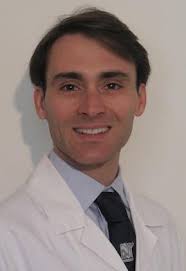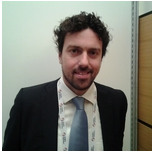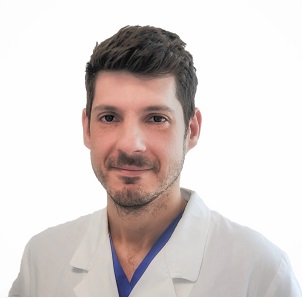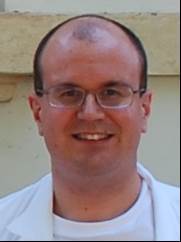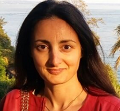Studying at the University of Verona
Here you can find information on the organisational aspects of the Programme, lecture timetables, learning activities and useful contact details for your time at the University, from enrolment to graduation.
Academic calendar
The academic calendar shows the deadlines and scheduled events that are relevant to students, teaching and technical-administrative staff of the University. Public holidays and University closures are also indicated. The academic year normally begins on 1 October each year and ends on 30 September of the following year.
Course calendar
The Academic Calendar sets out the degree programme lecture and exam timetables, as well as the relevant university closure dates..
| Period | From | To |
|---|---|---|
| 1° e 2° semestre (corsi annuali) PROFESSIONI SANITARIE | Oct 1, 2021 | Sep 30, 2022 |
| 1 SEMESTRE PROFESSIONI SANITARIE | Oct 1, 2021 | Dec 23, 2021 |
| 2 SEMESTRE PROFESSIONI SANITARIE | Jan 10, 2022 | Sep 30, 2022 |
| Session | From | To |
|---|---|---|
| 1^ SESSIONE A.A. 2020/2021 | Oct 1, 2021 | Nov 30, 2021 |
| 2^ SESSIONE A.A. 2020/2021 | Mar 1, 2022 | Apr 30, 2022 |
| Period | From | To |
|---|---|---|
| Festa di Tutti i Santi | Nov 1, 2021 | Nov 1, 2021 |
| Festa dell'Immacolata Concezione | Dec 8, 2021 | Dec 8, 2021 |
| Festa della Liberazione | Apr 25, 2022 | Apr 25, 2022 |
| Festa della Repubblica | Jun 2, 2022 | Jun 2, 2022 |
Exam calendar
Exam dates and rounds are managed by the relevant Medicine Teaching and Student Services Unit.
To view all the exam sessions available, please use the Exam dashboard on ESSE3.
If you forgot your login details or have problems logging in, please contact the relevant IT HelpDesk, or check the login details recovery web page.
Should you have any doubts or questions, please check the Enrollment FAQs
Academic staff
 monica.antonello@univr.it
monica.antonello@univr.it
 maribedin@libero.it
maribedin@libero.it
 michele.bertani@univr.it
michele.bertani@univr.it
Cunico Laura
 laura.cunico@univr.it
laura.cunico@univr.it
 chiara.gnata@libero.it
chiara.gnata@libero.it
 jessica.longhini@univr.it
jessica.longhini@univr.it
 tommaso.maluta@univr.it
tommaso.maluta@univr.it
 massimo.manfridi@univr.it
massimo.manfridi@univr.it
 loredana.pancheri@univr.it
loredana.pancheri@univr.it
 elda.righi@univr.it
elda.righi@univr.it
 rafaella.visona@univr.it
rafaella.visona@univr.it
 mirkozanatta@libero.it
mirkozanatta@libero.it
Study Plan
The Study Plan includes all modules, teaching and learning activities that each student will need to undertake during their time at the University.
Please select your Study Plan based on your enrollment year.
1° Year
| Modules | Credits | TAF | SSD |
|---|
Professional Laboratories (1st year)
2° Year activated in the A.Y. 2022/2023
| Modules | Credits | TAF | SSD |
|---|
Professional Laboratories (2nd year)
3° Year activated in the A.Y. 2023/2024
| Modules | Credits | TAF | SSD |
|---|
Corso di Rianimazione di Base con utilizzo del defibrillatore semiautomatico
| Modules | Credits | TAF | SSD |
|---|
Professional Laboratories (1st year)
| Modules | Credits | TAF | SSD |
|---|
Professional Laboratories (2nd year)
| Modules | Credits | TAF | SSD |
|---|
Corso di Rianimazione di Base con utilizzo del defibrillatore semiautomatico
Legend | Type of training activity (TTA)
TAF (Type of Educational Activity) All courses and activities are classified into different types of educational activities, indicated by a letter.
Biomolecular fondamentals of life - BIOCHIMICA (2021/2022)
Teaching code
4S000089
Teacher
Credits
2
Language
Italian
Scientific Disciplinary Sector (SSD)
BIO/10 - BIOCHEMISTRY
Period
1 SEMESTRE PROFESSIONI SANITARIE dal Oct 1, 2021 al Dec 23, 2021.
To show the organization of the course that includes this module, follow this link: Course organization
Learning outcomes
This course is aimed to introduce the students to the comprehension of the biochemical processes essential for both cells and organism function. The student will need to acquire the necessary knowledges to the understanding of the structural-functional relationships of the biological macromolecules and of the main metabolic pathways.
Program
Proteins. The amino acids. Peptide bond. Structural levels of proteins. Collagen. Keratin. Myoglobin and hemoglobin. Enzymes. Chemical reactions and reaction speed. Catalysis. Coenzymes: functional significance and relationship to water-soluble vitamins. Mechanism of action of enzymes. Enzyme kinetics. Nucleotides. Structure and functions of nucleotides. Nucleic acids. Coenzymes. The adenylic nucleotides. Carbohydrates. Monosaccharides. Natural oligosaccharides. Polysaccharides. Glycogen. Metabolism. Equilibrium of reaction. Compounds with bonds to high energy content and accoppiate. Catabolism and anabolism. Metabolismo carbohydrates. Digestion of carbohydrates. Glycolysis. Glycogenolysis, glycogen synthesis. Pentose phosphate pathway. Gluco (neo) genesis. Hormonal regulation of the Glucose level. Lactic and alcoholic fermentation of the piruvate. Krebs cycle. Respiratory chain and oxidative phosphorylation. Catabolism energy balance of glucides. Lipids. The fatty acids. Essential fatty acids. The triglycerides. Lipid membrane phospholipids. Cholesterol. Digestion of fats. Lipids delivery. Lipoproteins. Lipid metabolism. Role of carnitine. Catabolism of fatty acids: in beta oxidation of fatty acids. Formation of ketone bodies: physiological significance and their effect on the acid-base. Catabolism energy balance of fatty acids. Synthesis of fatty acids. FAS complex. Metabolism of cholesterol. Metabolism of proteins. Protein digestion. General amino acid catabolism. Transamination, deamination and decarboxylation reactions. Fate of the amino acid skeleton: glucogenic and ketogenic amino acids. Urea cycle.
Bibliography
Examination Methods
Written part with multiple choice and open questions
Career prospects
Module/Programme news
News for students
There you will find information, resources and services useful during your time at the University (Student’s exam record, your study plan on ESSE3, Distance Learning courses, university email account, office forms, administrative procedures, etc.). You can log into MyUnivr with your GIA login details: only in this way will you be able to receive notification of all the notices from your teachers and your secretariat via email and soon also via the Univr app.
Gestione carriere
Orario lezioni
Si invitano gli studenti a prendere visione dei possibili aggiornamenti.
Indicazioni per l'iscrizione alla pagina moodle degli insegnamenti per il 1° anno
Si pubblica la programmazione annuale dell'attività didattica e tirocinio per l'anno accademico 2023-2024
AGGIORNAMENTO 25 MARZO 2024 Calendario lezioni 1°A. 2° semestre A.A. 2023/2024
AGGIORNAMENTO 15 APRILE 2024 Calendario lezioni 3° anno 2° semestre A.A 2023/2024
AGGIORNAMENTO 23 APRILE 2024 Calendario lezioni 2° anno 2° semestre 2023/2024
Documents
| Title | Info File |
|---|---|
|
|
pdf, it, 70 KB, 15/04/24 |
|
|
pdf, it, 60 KB, 24/04/24 |
|
|
pdf, it, 49 KB, 25/03/24 |
|
|
pdf, it, 528 KB, 13/07/23 |
|
|
pdf, it, 8849 KB, 13/10/22 |
Guida ai programmi degli insegnamenti
Guida ai programmi degli insegnamenti
Documents
| Title | Info File |
|---|---|
|
|
pdf, it, 1594 KB, 12/12/22 |
|
|
pdf, it, 1310 KB, 02/09/21 |
Graduation
Documents
| Title | Info File |
|---|---|
|
|
pdf, it, 242 KB, 19/01/24 |
|
|
pdf, it, 80 KB, 06/04/24 |
|
|
pdf, it, 43 KB, 06/04/24 |
|
|
pdf, it, 44 KB, 09/04/24 |
|
|
pdf, it, 148 KB, 06/04/24 |
|
|
pdf, it, 108 KB, 06/04/24 |
|
|
pdf, it, 115 KB, 06/04/24 |
|
|
pdf, it, 1487 KB, 18/02/22 |
|
|
pdf, it, 437 KB, 22/03/24 |
|
|
pdf, it, 957 KB, 22/03/24 |
|
|
pdf, it, 424 KB, 19/01/24 |
Linee guida per riconoscimento cfu
Lo studente che intende chiedere il riconoscimento di moduli o insegnamenti pregressi dovrà presentare domanda, entro il 30 novembre dell’anno accademico in corso, seguendo le indicazioni indicate al link seguente: https://www.univr.it/it/i-nostri-servizi/segreterie-studenti/gestione-carriere-studenti-medicina-e-chirurgia/riconoscimento-crediti-acquisiti-da-una-carriera-pregressa-medicina
Documents
| Title | Info File |
|---|---|
|
|
pdf, it, 295 KB, 09/11/21 |
Appelli d'esame
AGGIORNAMENTO 11 MARZO calendario appelli d'esame di APRILE 2024 per il 1° Anno
AGGIORNAMENTO 4 MARZO calendario appelli d'esame di MAGGIO 2024 per il 3° Anno
Documents
| Title | Info File |
|---|---|
|
|
pdf, it, 190 KB, 11/03/24 |
|
|
pdf, it, 194 KB, 04/03/24 |
|
|
pdf, it, 196 KB, 11/01/24 |
Student login and resources
Attività didattiche regime part-time
Modalità di richiesta
La domanda di iscrizione part-time può essere presentata all'inizio di ogni anno accademico e comunque entro il 30 novembre di ogni anno. Entro lo stesso termine, se necessario, lo studente potrà richiedere di tornare al regime full-time. Al link seguente la pagina del servizio https://www.univr.it/it/i-nostri-servizi/segreterie-studenti/flessibilita-nella-frequenza-dei-corsi/possibilita-di-iscrizione-part-time-e-ripristino-full-time
Una volta inviata la domanda, lo studente concorda in via preventiva con il Coordinatore della didattica professionale (CDP), il piano di studi che intende perseguire nel periodo di part-time compilando il modulo in allegato
Documents
| Title | Info File |
|---|---|
|
|
octet-stream, it, 1309 KB, 21/10/22 |

 +39 0458122901
+39 0458122901



